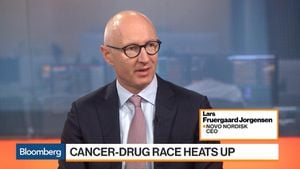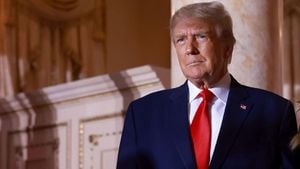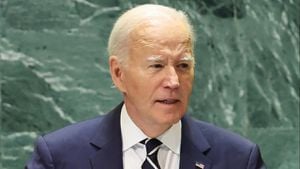Psychedelic drugs have long intrigued scientists and the general public alike, not just for their mind-bending effects, but also for their potential to treat serious mental health disorders. Among these substances, psilocybin, the active compound in magic mushrooms, has emerged as a particularly promising candidate. A new body of research sheds light on how psilocybin temporarily "dissolves" brain networks, providing new insights into how it might help treat conditions like depression.
A recent study led by Dr. Joshua Siegel from the Washington University School of Medicine in St. Louis provides a detailed look into how psilocybin rewires the brain. Researchers used a technique called precision functional mapping to collect an enormous amount of brain activity data from a small group of seven participants. Each participant underwent numerous functional MRI (fMRI) scans, giving scientists an unprecedented view of how brain connectivity changes over time after a dose of psilocybin. Over the course of the study, each participant received 25 milligrams of psilocybin and, on a different occasion, 40 milligrams of methylphenidate (Ritalin) for comparison.
The findings, published in Nature, were striking. While under the influence of psilocybin, the participants' brains showed a dramatic decrease in the synchronicity of the default mode network (DMN), a series of interconnected brain regions associated with self-reflection and daydreaming. This network includes the thalamus, basal ganglia, cerebellum, and hippocampus. Normally, these regions activate and deactivate in a highly coordinated fashion, but under psilocybin, this coordination was disrupted, essentially creating neural "chaos."
Nico Dosenbach, a neuroscientist at Washington University and also one of the study's participants, described the experience: "You read about it, and you think about it and then you experience it, and you’re like, ‘Wow, that’s even more real.’" According to the MRI scans, the drug seemed to erase the participants' neural fingerprints. Dosenbach used an analogy to explain the effect: "You’d be like, ‘That is my face, and that is your face.’ And then you took a medicine, and we both had a puppy face—very similar, but very different from our normal faces."
Interestingly, the study also found that while most of the psilocybin-induced brain changes reverted to normal within a day, one particular alteration persisted for up to three weeks. This was a decreased synchronicity between the DMN and the anterior hippocampus, a region involved in memory and emotion. Scientists do not yet know how long this change might last or what its broader implications are, but the findings add significant weight to earlier research suggesting that psilocybin could help in treating depression.
This is not the first study to explore how psychedelics affect the brain, but the Siegel team's use of precision functional mapping has provided a more detailed and complex picture than previous research. Traditionally, studies using animal models suggested that psychedelics like psilocybin induce changes in brain chemistry and structure, but the new study confirms these effects in human subjects.
Understanding how psilocybin alters brain connectivity is crucial for comprehending its therapeutic potential. The new study shows that psilocybin decreases the power of electrophysiological signals and reduces hemodynamic fluctuations, leading to a more fluid and less rigid brain state. Siegel explains that this could make the brain more adaptable, potentially "resetting" neural circuits in a way that benefits people struggling with mental health issues.
However, the drug's effects are highly context-dependent. Siegel and his colleagues noted that asking participants to perform a simple word-picture matching task during the scans reduced the magnitude of psilocybin-driven changes. This implies that external stimuli can significantly influence the drug's impact on the brain, a finding that has crucial implications for its therapeutic use.
For example, in clinical settings, creating a controlled environment and minimizing external distractions could enhance the drug's beneficial effects. As Siegel pointed out, "You want somebody to be able to have this internal experience and be in a place and setting where they're able to fully enter into this intense experience, in order to maximize the likelihood that you're going to get a lasting therapeutic response afterwards."
The precision functional mapping data also revealed that the effects of psilocybin are highly individualized. The extent of neural desynchronization varied between participants, indicating that personal differences could play a significant role in how the drug affects the brain. Despite these variations, a common effect was the increased complexity or "entropy" in brain signal patterns, a hallmark of the psychedelic state.
Earlier studies have shown that psychedelics can induce synaptogenesis— the formation of new synapses— which may be essential for their antidepressant effects. This study provides additional evidence supporting this mechanism. The sustained decrease in connectivity between the DMN and the anterior hippocampus, for example, aligns with earlier observations that psilocybin increases plasticity in brain regions associated with memory and self-awareness.
The findings come at a time when interest in the therapeutic potential of psychedelics is burgeoning. Recent studies have indicated that psychedelics like psilocybin, LSD, and ayahuasca could be effective treatments for various mental health conditions including depression, PTSD, and addiction. However, the path to mainstream acceptance and clinical use is fraught with challenges, not the least of which is understanding the precise mechanisms through which these substances exert their effects.
Siegel's study is a significant step in this direction, offering a nuanced look at psilocybin's impact on the human brain. While much remains to be understood, the research lays the groundwork for future studies aimed at harnessing psychedelics' therapeutic potential. As scientific understanding deepens, it could pave the way for new, more effective treatments for mental health disorders that have long resisted traditional therapies.
In an editorial commentary on the study, Dr. Petros Petridis, a psychiatrist at the NYU Langone Center for Psychedelic Medicine, reflected on the importance of this research: "In other words, psilocybin could open the door to change, allowing the therapist to lead the patient through.” This sentiment captures not only the promise of the drug but also the careful consideration needed to integrate such powerful substances into clinical practice safely.
The new insights into how psilocybin “dissolves” brain networks contribute to our growing understanding of its complex effects on the human brain. They offer a glimmer of hope for those suffering from conditions like depression, pointing to a future where treatments are not just more effective but also kinder and more aligned with the brain’s natural functioning.



